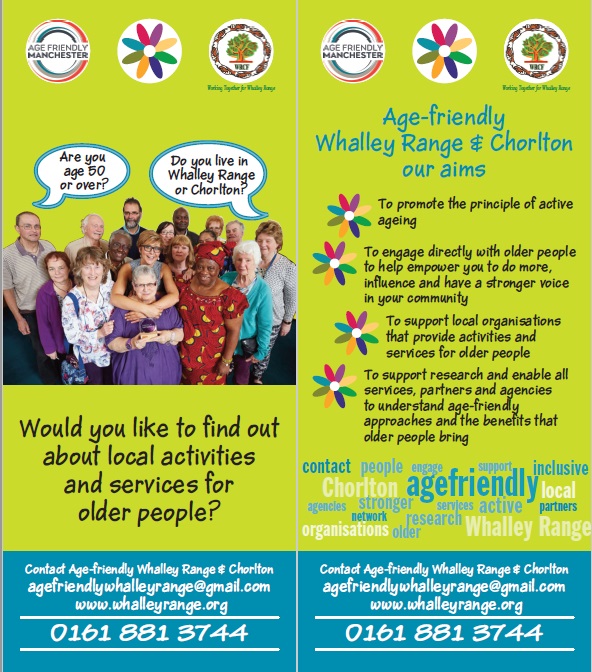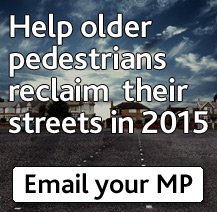Yesterday morning, Age UK handed its petition into the Department of Health, calling on the Government to close a loophole that means some older people receiving care are not directly covered by the Human Rights Act because of the way their care is arranged and paid for.
It an absurd situation. Two people living in the same care home could have different rights and protections because of this loophole. That means that when abuse and neglect takes place, some people have fewer options for redress. We think this is wrong.
On Monday, MPs will be debating the Care Bill in its Report Stage. In its previous stage, a committee of MPs narrowly voted to remove Clause 48 from the Care Bill. Clause 48 was introduced to the Care Bill in the House of Lords to close the loophole in protection. This was disappointing but not unexpected. In that debate, MPs were referring to public support for Clause 48 and we know that our petition helped to push the vote so close.
Now a new clause is to be debated in the House of Commons on Monday. This clause, recommended by the Joint Committee on Human Rights, a group of cross-party MPs and Lords, would close the loophole for the vast majority of older people who need care services.
Thanks to so many people signing our petition and contacting their MPs, we now have a great opportunity to keep the pressure on MPs to accept this new clause and provide clarity on the type of protection people receiving care services should have.
Ageing population: what can the UK learn from overseas?
From intergenerational holiday camps to a parliament for older people, schemes across Europe and further afield could offer inspiration
Our rapidly ageing population raises a slew of questions for our society. How will we meet the cost of social care? What can we do to prevent isolation and loneliness? How can we promote the positive contribution that older people make to society?
Many developed nations are facing the same challenges. “Were all wrestling with the problems of social isolation and loneliness in one way or another,†said Mervyn Kohler, external affairs advisor to Age UK.
He added: “You cant assume that we can pick up a model from one country and transplant it over here, but … there are many more imaginative ways to address the growing problem.â€
Here are five projects making an impact in managing an ageing population.
Germany
Alongside regular taxes, German citizens pay into a social insurance scheme which pays for the cost of care that may be needed in later life or if long term illness or disability hits. When citizens make a claim they have a choice: either they can take a lump sum or they can ask for “payment in kindâ€, which means the cost of the services they need will be covered by the state.
“The cash payment is of much lower value than if youd opted for the services in kind, but it very popular,†said Caroline Glendinning, professor of social policy at the University of York. “It used to support family care giving.â€
The scheme is financially stable because, culturally, care is often provided informally by family members, and so the strain of paying for large amounts of care does not fall to the state. Opting for the single payment also means the carer has some claim to the money. The scheme pays into the pension of the carer, offers four weeks respite care and provides access to training.
“The German social insurance idea is a good one in terms of trying to ensure that the entire population actually has an income which is respectable and adequate enough to open up the possibility of social inclusion rather than just mere survival,†said Kohler.
Netherlands
In the Netherlands, a visiting scheme for older people has been established to prevent isolation. Volunteers are recruited en masse. They provide older people with information about services, ask about their emotional wellbeing and establish if they are lonely. If the volunteers cannot solve a problem themselves they turn to professionals. The aim of the scheme is that every older person in the country is visited at least once a year, but the performance of local governments varies depending on their financial situation.
France
French authorities have developed an inter-generational leisure scheme which helps pensioners to spend their holidays with family, even if they are frail. Funds from the French state pension are diverted to fund the construction of large holiday complexes suitable for all the family, from small children to the very old – with most located in already popular holiday destinations along the southern and northern coastlines.
“It an excellent example of lived inter-generational solidarity: you can actually go on holidays as a family, including grandparents, if some basic healthcare and social care infrastructure is provided,†observed Andreas Hoff, a research fellow at the Oxford Institute of Ageing.
He added: “Isnt that much better than asking for respite care? Middle-aged caregivers get respite without the feelings of guilt for leaving behind their parents in institutional care.â€
The holiday parks have easy access for disabled people and sheltered accommodation with specialist medical and care facilities. Holidaymakers do pay for their stay, but some families can apply for assistance.
Japan
Adachi, a heavily populated ward in the north of Tokyo, has launched a “zero isolation†project aimed at reaching out to its ageing community. Data is analysed on all people over the age of 70. Older people who talk with someone outside their household less than once a week, or has nobody to turn to for help are defined as isolated. For those who meet the criteria, visitors help to break the cycle of isolation and encourage participation in events such as karaoke, exercise groups and shared dinners. There are events aimed at bringing isolated people out of their homes and into the community at least twice a month.
“Adachi initiative around zero isolation was a specific response to the community despair that a deceased older man could lay undiscovered in his home for as long as 30 years,†said Andrew Stevens, chief researcher at the Japan Local Government Centre.
He added: “The scheme was aimed at using existing resources and structures more effectively to promote vigilance on the part of a busy population living in a Tokyo commuter suburb, towards their older neighbours.â€
The scheme is already being rolled out to single parents.
Cyprus
Cyprus has established a parliament for older people made up of representatives from charities and groups. It meets once a year, together with the Cypriot president, the minister of health and the minister of labour and social insurances. Ministers are bound by law to implement some of their decisions. The parliament even delayed a recent banking vote, to protect the interests of savers.
Ireland has a similar scheme, the Irish senior citizens parliament, which is run by volunteers and has had huge success in rallying older people to put pressure on government.










